Crema di Limoncello
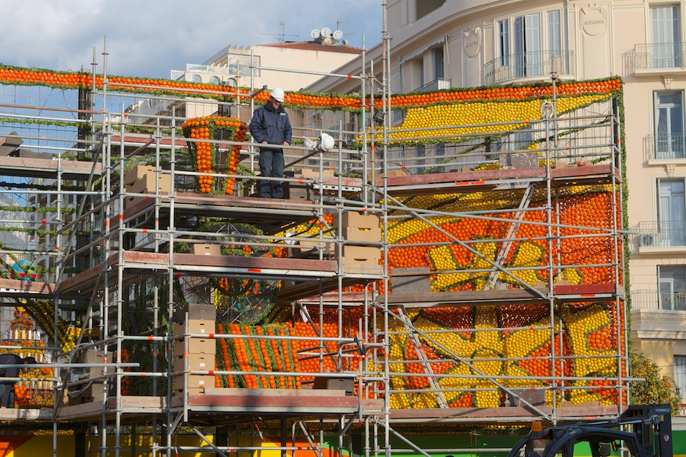
In February we went to Menton, France for Robert's birthday. The town is famous for it's lemons. We happened to be there while they were setting up for their annual Lemon festival. Our last day there we bought some lemons to take home and to try and make our first ever batch of Limoncello.
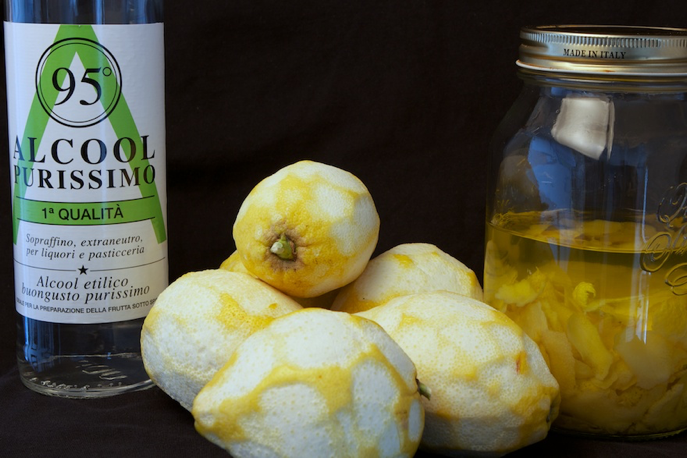
The Recipe is from our neighbour, Pina, she makes it every year in the spring.
Crema di Limoncello di Pina
Ingredients:
5 lemons
1/2 litter pure alcohol 95 proof
1 litter whole milk
1 kg sugar
1 vanilla bean
Directions:
Cut off the lemon peel, careful not also cut off the white part part, and put in alcohol for a minimum of 10 days.
After 10+ days, combine the milk, sugar and vanilla bean (cut in half and scrape, add whole bean and scrapings to the milk) and bring to a boil. Boil until the sugar is dissolved.
Let the milk mixture completely cool before adding to the alcohol and lemon peels.
When it has cooled, add the milk mixture to the alcohol and let sit for 20 minutes, then pass it through a fine mesh strainer before putting it in the bottles.
Immediately store all bottles in a freezer.
This is a great after dinner drink on a hot summer day in Italy.
Blood Orange Panna Cotta
Blood Orange Panna Cotta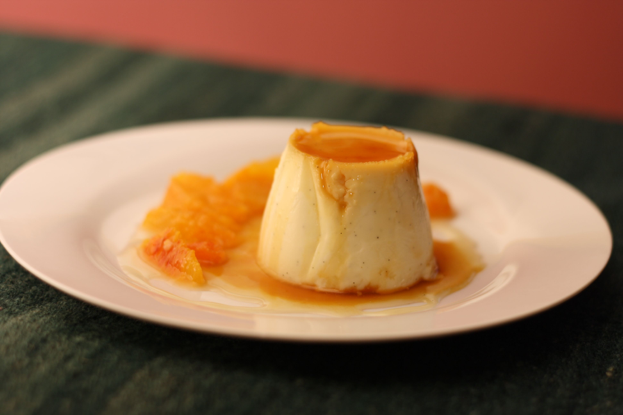
After years of complaining about restaurants adding flavors to the classic panna cotta,
a northern Italian dessert that is literally “cooked cream”,
this week I finally changed my mind and made a batch of panna cotta with some blood oranges that are in season right now.
The result was a fantastic mix of sweet cream and citrus flavors with a drizzle of acacia honey.
I should of tried it sooner. If you want the "classic" recipe, just omit the orange juice and zest.
Neapolitan Style Pizza Dough
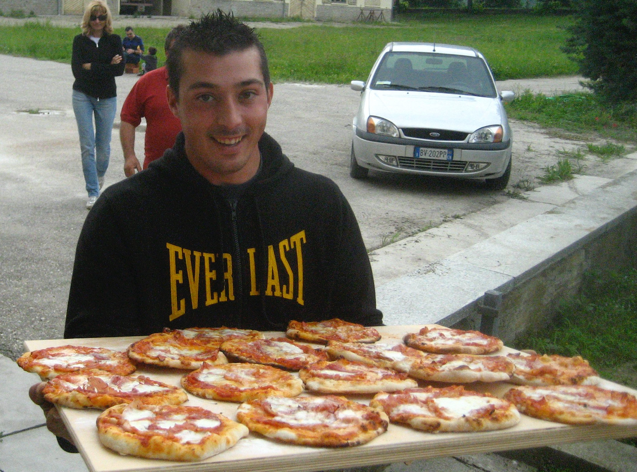
When we moved to Italy 3 1/2 years ago. Our new house (500 year old farmhouse) came with a HUGE wood fired pizza oven.
It hadn't been used in many years. We asked the neighbors for help and decided to make an bread and pizza day the following weekend. We bought some pizza tools and the neighbors showed us a stock of hazelnut wood behind the oven. The farm has many acres of vineyards and hazelnut orchards that 2 Piemontese brothers look after.
The following weekend we got up early and lighted the pizza oven. Lorenzo, our neighbor said it had to burn for many hours to get all the dampness out since it hadn't been used in a long time. Later in the morning we made a big batch of bread dough.
Thankfully the neighbors had a BIG mixer that he got from Ferrero, that was used to mix chocolate.
Our normal batch ended up being about 40 big rounds of bread, similar to ciabatta. The 40 rounds fit in the all at the same time (that's how big the oven is)! The fire burned for many hours, the ceiling became all white, which is what you want, extremely hot, then we had to let it cool down a little for the bread, for pizza, the hotter the better (around 700 degrees F).
We took out all the coals and saved them in a metal container, cleaned the floor of the oven by brush and then a mop with water.
When the oven was a good temperature (about 375 F), the bread went in. It turned out perfect! Everybody had fun. This started a routine to make bread every other Sunday afternoon, followed by pizza dinner.
Later, for dinner, we put the coals back in, added more wood and got the oven back up to pizza temperature.
We assembled our pizzas "Pizza Prosciutto", dough, tomato sauce, proscuitto cotto, mozzarella and oregano and put them in the oven.
They cooked in about 3-4 minutes and turned out good! It was now mid October, a little too cold to eat dinner outside, so we put all the pizzas on big pasta boards and drove them next door to their winery, Vigin, and we ate them in the winery on a big temporary table.
A very fun day working together.
The pizza dough was good but I started that day on a quest to find a great pizza dough recipe that took many tries, after about 8 bread baking days, this recipe was finally the winner. This pizza dough recipe also makes a really good foccaccia.
Bugie di Carnevale
Bugie di Carnevale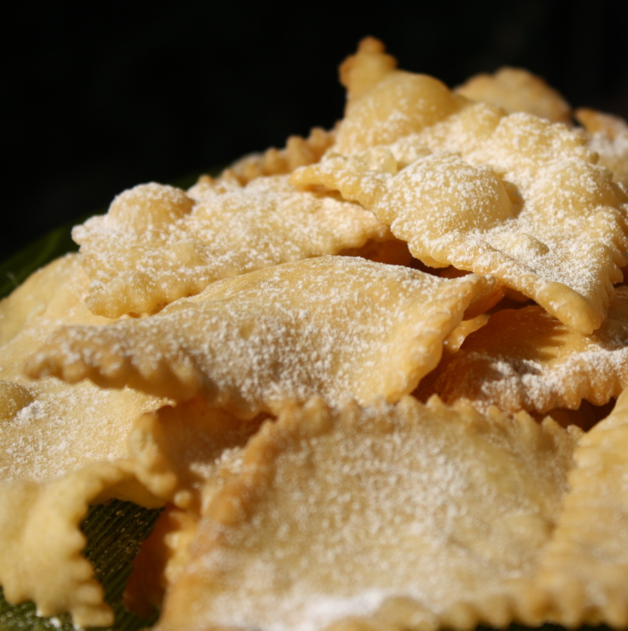
Carnevale in Italy is a month long public festival with more partying towards the end of February.
Lent is book ended by Carnevale and Pasquetta(little Easter, always the day after Easter, big, all day, outdoor BBQ with lots of wine!), two big parties of eating rich foods and drinking.
One of these rich foods is Bugie di Carnevale, a fried pastry sprinkled with sugar.
It is literally everywhere during the month of February.
This is a recipe we got from our neighbor Pina. For the past 2 years I have made these with her during Carnevale.
Definition of Carnevale in Wikipedia
The Lenten period of the Liturgical year Church calendar, being the six weeks directly before Easter, was marked by fasting and other pious or penetential practices. Traditionally during Lent, no parties or other celebrations were held, and people refrained from eating rich foods, such as meat, dairy, fats and sugar. The forty days of Lent, recalling the biblical account of the forty days that Jesus spent in the wilderness, serve to mark an annual time of turning. In the days before Lent, all rich food and drink had to be disposed of. The consumption of this, in a giant party that involved the whole community, is thought to be the origin of Carnival.
Carnival is a festive season which occurs immediately before Lent; the main events are usually during February. Carnival typically involves a public celebration or parade combining some elements of a circus, mask and public street party. People often dress up ormasquerade during the celebrations, which mark an overturning of daily life.